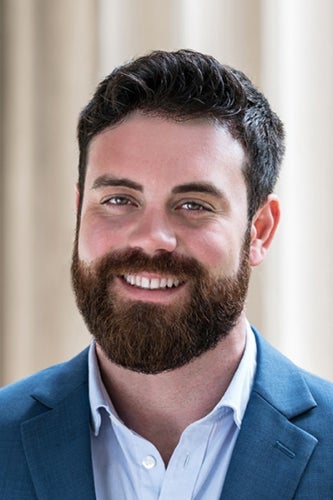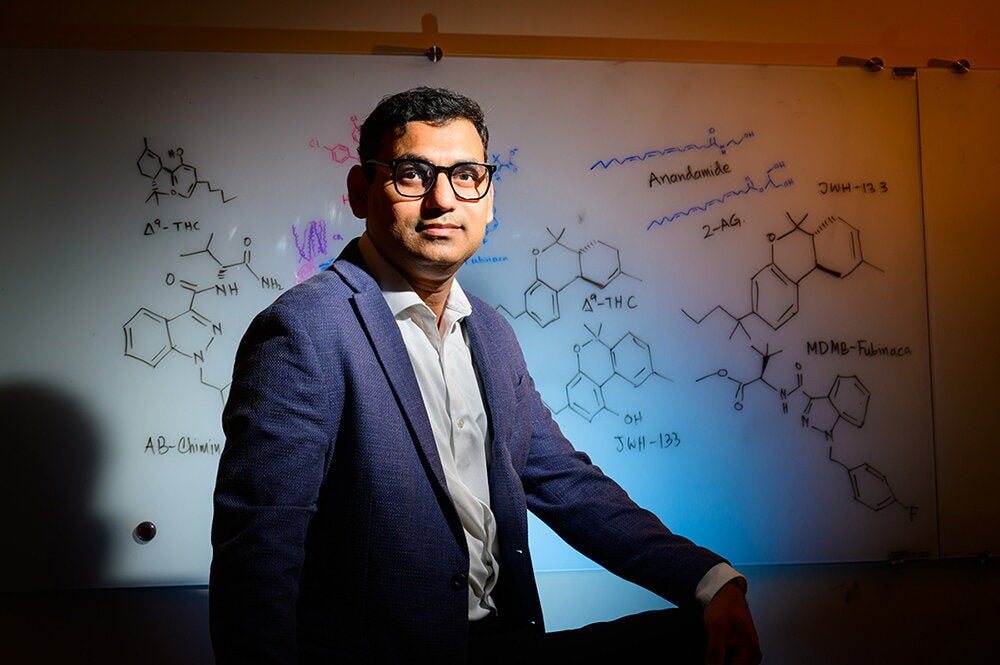
Jacob Becraft had always dreamed of attending the U of I. Little did he know that not only would his dreams come true, but within 10 years of graduating he would be invited back to his alma mater to accept a prestigious alumni award.
Becraft graduated from Illinois in the Spring of 2013 with a bachelor’s degree in chemical engineering. From there, he went on to earn his PhD in biological engineering and synthetic biology at Massachusetts Institute for Technology while also developing the world’s first synthetic biology programming language for mRNA, which carries the information necessary for the body to make proteins.
Since 2019, Becraft has served as CEO and co-founder of Strand Therapeutics while remaining in Boston.
In wake of this early career success, Becraft is receiving the Outstanding Young Alumni Award from the College of LAS.
“Dr. Becraft truly is an outstanding young alum and I’m sure he will make us even more proud as his career advances,” said Gene Robinson, Swanlund Chair in Entomology and director of the Carl R. Woese Institute for Genomic Biology, who supported Becraft’s nomination. “The best is yet to come.”
With nearly 100 employees, Becraft’s biotech company, Strand Therapeutics, applies synthetic biology to improve mRNA therapeutics. They are working to develop the first platform for the creation of programmable mRNA drugs with the potential to deliver multifunctional, precise, and curative treatments with a single dose.
They are working with SAfER, the world’s first synthetic biology programming language for mRNA, which Becraft started developing in graduate school.
“Our synbio platform (SAfER) allows us to control which cells the mRNA will express in,” Becraft said. “This addresses the biggest issue of mRNA therapeutics: controlling the specificity of where the mRNA goes/is active.”
Becraft describes the idea of mRNA therapeutics as being similar to that of mRNA vaccines for COVID. “However, instead of creating a vaccine once the mRNA enters the cell (in the case of COVID, creating a COVID protein), our drugs enter cancer cells and then produce anticancer drugs, (essentially) turning the tumor into an anti-drug factory.”
Becraft said that ever since his childhood he’s had a strong interest in developing innovative technology. That interest started to become reality once he arrived at Illinois.
“My first week at Illinois, I reached out to many professors for undergrad research opportunities,” he said. “Those experiences formed the basis of my interests in building better gene delivery technologies which led to my later work at MIT.”
He added, “The educational foundations built at Illinois helped form the basis of how I approach difficult problems. Those problem-solving skills are what helped me approach difficult ideas and build the teams around me to beat them.”
The transition from graduate student to CEO entailed lots of changes, he said—the biggest of which was switching from being a single researcher to “being a leader of a group, motivating and mapping a vision for the future for scientists that are much more talented than me.”
It can be a high-stress job, and Becraft recharges by engaging in outdoor activities.
“I like to snowboard and find mountains to be very soothing to this part of my soul,” he said.
He’s also remained in touch with his alma mater. He returned to campus in fall of 2021 to receive a Young Alumni Achievement Award from the Department of Chemical and Biomolecular Engineering, and in fall of 2022, upon an invite from Robinson, Becraft returned to campus to give a lecture at IGB. He spoke about his research and the spirit of entrepreneurship which led to co-founding Strand Therapeutics.
After the lecture, Becraft met with graduate students and postdocs to offer career advice.
“They very much appreciated his engagement and wisdom,” Robinson said.
Becraft said that he couldn’t help but pay tribute to the place that got him started.
“At Illinois I formed the basis for the type of scientist I would become,” he said. “The immense research talent at Illinois allowed me to pursue bold ideas when I was only 18, and that put me on a track and ahead of many others on the quest to build breakthrough scientific discoveries.”


